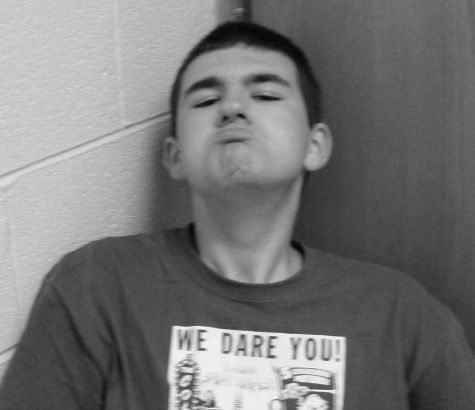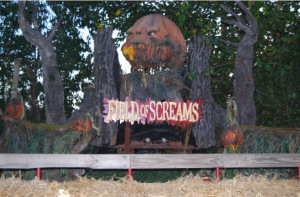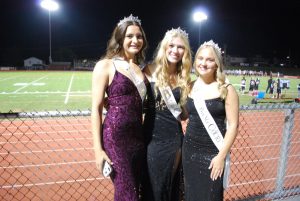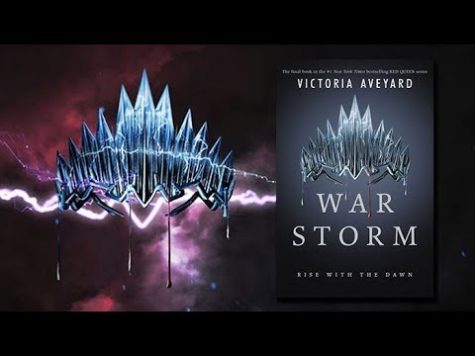The Grand Budapest Hotel is a grand slam of a movie
I’ve been looking forward to seeing The Grand Budapest Hotel for nearly two years now, ever since I saw Moonrise Kingdom, also written and directed by Wes Anderson. Moonrise Kingdom was in my opinion the best movie of 2012, and immediately after seeing it I wanted to see what Anderson (who also crafted such brilliant movies like Fantastic Mr. Fox and Rushmore) was up to next. The Grand Budapest Hotel not only met my expectations, but surpassed them.
One of the main reasons I loved this movie so much was that it avoided things people usually complain about in Anderson films, one of them being that his movies are too light and fluffy with no real conflict. The Grand Budapest actually had a much darker and complex tone than anything else he has ever done.
For the most part, it follows a lobby boy, named Zero, who works for a hotel and befriends the concierge Gustav H. (Ralph Fiennes, Voldemort in the Harry Potter movies). They eventually find themselves in trouble when Gustav gets framed for a murder and the two have to prove Gustav’s innocence. This part of the plot, which takes place in 1932, is being told by a much older Zero to a journalist in 1968, who is recounting it in 1985 for a novel he’s writing. That novel he wrote is being read at his grave by a girl in the present at the beginning of the movie, making it a story-within-a-story-within-a-story.
This is easily the most ambitious thing Anderson has ever done, yet he never trips over the plot into a confused mess, always making it very clear at all times what is going on and where.
Despite being a comedy, it also has a rather dark undercurrent in its story, one that becomes more and more aparent as the movie goes on. All of his earlier movies usually have a sort of safety net-like feeling in them, letting the audience know that no matter what happened things were going to end up OK in the end. This one starts out that way in typical Anderson fashion, but as it goes on and becomes gradually darker, that safety net slowly disappears. This becomes an even heavier theme when it becomes apparent that each narrator isn’t telling their story with whimsical nostalgia, but with despair and feelings of sadness and loss.
Another complaint about Anderson’s films is that he keeps using the same people in all his movies and never uses anyone new. This is true, especially with Bill Murray, who has been in 7 of his 8 movies (including this one). There’s no such thing as too much Bill Murray, so I never found this to be problem. And yes, The Grand Budapest still has everyone from Wes Anderson’s other movies in it, specifically Owen Wilson, Jason Swartzmen and Bill Muray. Surprisingly, though, they all have very minor roles, mostly consisting of a couple of lines and no more than a minute of screentime for each of them. A majority of the cast is newcomers. It includes Tilda Swinton as Madame D., the 84-year-old woman who is murdered. Jude Law shows up as the young journalist being told the story.Willam DeFoe and Adrian Brody have parts as Madame D’s evil family members. And Jeff Goldblum has a part as a lawyer who is working on Madame D’s will, which entitles Ralph Fiennes’ character to a valuable painting the whole family is after.
Speaking of Ralph Fiennes, I was a little hesitant to hear that he was playing the main character in this, considering this is mostly a comedy and Fiennes is not really known as a funny guy. Yet after watching him as Gustav H. for five minutes, I realized not only was he amazing at comedic timing, but that he was playing a role no one else could pull off. He could be suave, funny, and a jerk all at the same time, and with little effort. And it’s made all the better since he’s never been in a Wes Anderson movie, so it’s nice to see a new face in a leading role.
The Grand Budapest is a real treasure of a movie from start to finish. With beautiful visuals, a complex and engrossing plot, and a perfect cast that brings each character to life. I highly recommend seeing it without reading any plot summaries in advance. The plot takes so many twists and turns that part of the fun watching it is not knowing what is going to happen next.

James Mason is a writer for Temple University. When not writing for the newspaper, he can be found at home reading badly, writing badly, viewing bad...















